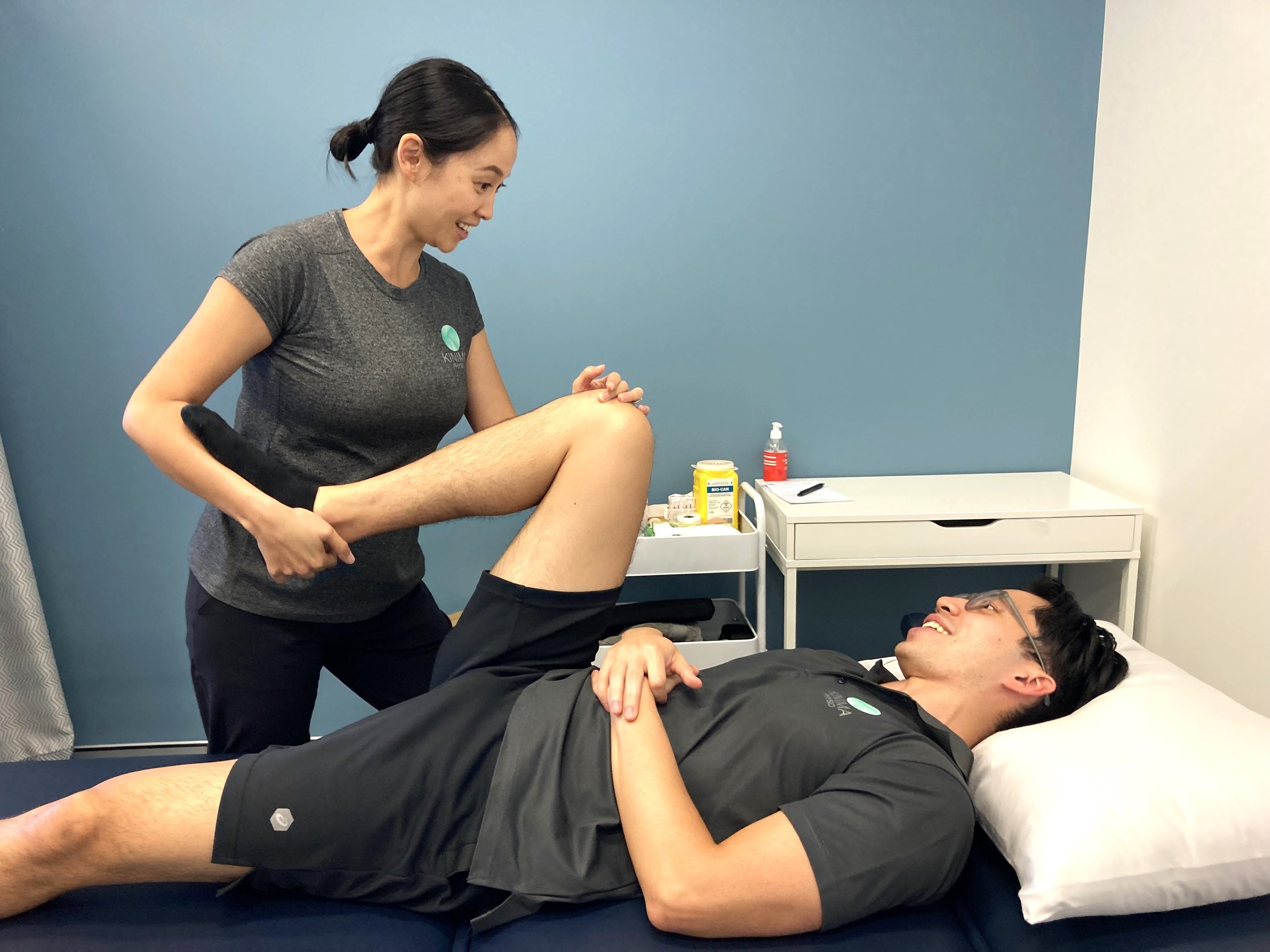Knee pain is a common complaint that affects people of all ages and lifestyles. Whether it’s a sharp, stabbing pain with every step or a dull ache that persists throughout the day, knee pain can significantly impact your quality of life. Understanding the underlying causes of knee pain and tailoring treatment to address your specific needs is crucial for effective management. In this blog, we’ll delve into the various types of knee pain, explore the causes behind them, and discuss how physiotherapy offers personalized solutions to alleviate discomfort and improve mobility.
Common Types of Knee Pain
Knee pain can stem from a multitude of sources, each with its own set of symptoms and treatment approaches. Osteoarthritis, characterized by the breakdown of cartilage in the knee joint, is a leading cause of knee pain, especially among older adults. Patellar tendinitis, or “jumper’s knee,” occurs when the tendon connecting the kneecap to the shinbone becomes inflamed due to repetitive stress or overuse. Additionally, meniscus tears, which involve damage to the cartilage pads between the thighbone and shinbone, can lead to sharp, localized pain in the knee.
Causes of Knee Pain
Understanding the underlying causes of knee pain is essential for effective treatment. Injuries, such as ligament sprains or tears, can result from sudden twists or impacts to the knee during physical activity or accidents. Overuse injuries, commonly seen in athletes or individuals who engage in repetitive movements, can lead to inflammation and degeneration of the knee structures over time. Aging also plays a significant role, as wear and tear on the knee joint can exacerbate existing conditions and increase the risk of developing osteoarthritis.
Physiotherapy Approaches for Different Types of Knee Pain
Physiotherapy offers a holistic approach to knee pain management, focusing on strengthening the muscles surrounding the knee joint, improving flexibility, and promoting proper biomechanics. For osteoarthritis, physiotherapy may include low-impact exercises, such as swimming or cycling, to reduce pain and stiffness while preserving joint function. Patellar tendinitis may benefit from targeted stretches and strengthening exercises to alleviate tension on the tendon and promote healing. In the case of meniscus tears, physiotherapy aims to improve joint stability and range of motion through tailored exercise programs and manual therapy techniques.
Benefits of Physiotherapy for Knee Pain
One of the primary advantages of physiotherapy for knee pain is its non-invasive nature, making it a safer alternative to surgery or medication for many individuals. Physiotherapy focuses on addressing the root cause of the pain rather than just masking symptoms, resulting in long-term relief and improved functional outcomes. By incorporating patient education and self-management strategies, physiotherapy empowers individuals to take an active role in their recovery and prevent future injuries.
Tips for Finding the Right Physiotherapist
When seeking physiotherapy for knee pain, it’s essential to choose a qualified and experienced practitioner who specializes in musculoskeletal conditions. Look for physiotherapists who hold relevant certifications and have a track record of success in treating knee pain. Additionally, consider factors such as the location of the clinic, availability of appointments, and compatibility with your personal preferences and treatment goals. Communication is key, so don’t hesitate to ask questions and voice any concerns you may have before starting treatment.
Takeaway
Knee pain can have a significant impact on your daily activities and overall quality of life, but it doesn’t have to be a constant source of discomfort. By understanding the different types of knee pain and seeking personalized physiotherapy tailored to your specific needs, you can take proactive steps towards pain relief and improved mobility. Don’t let knee pain hold you back – schedule a consultation with a qualified physiotherapist today and take the first step towards a healthier, happier you.
The specialized techniques and personalized care provided through physiotherapy for knee pain Singapore offer promising outcomes for individuals looking to regain function and alleviate discomfort.




